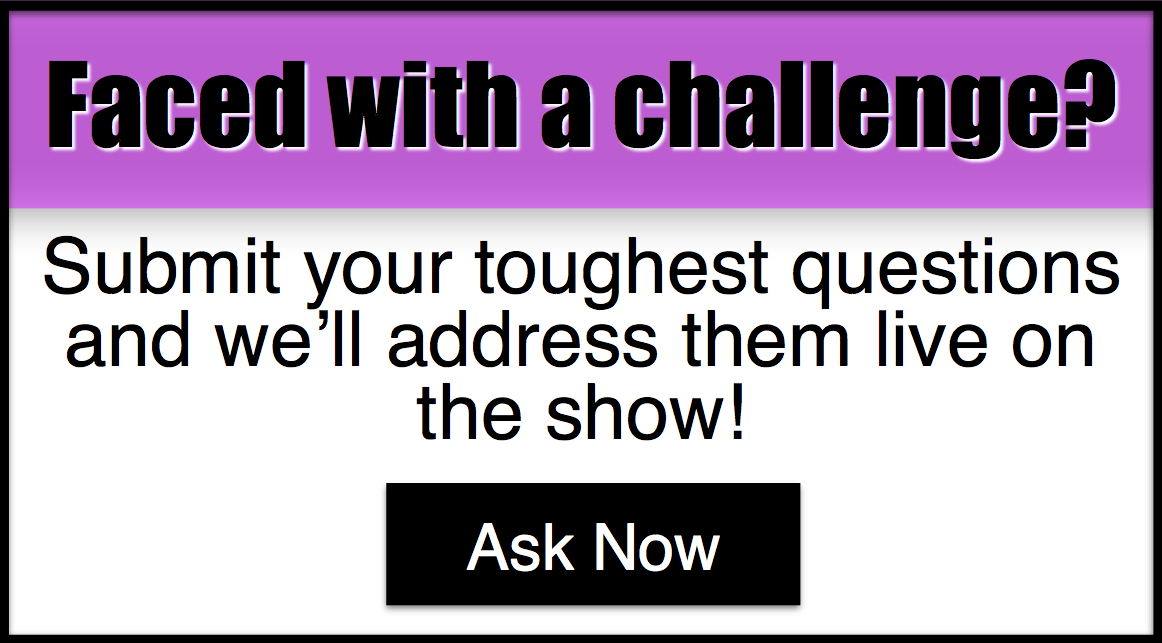Webhelp you have a stronger cough to clear your phlegm; Wait for 1 hour after having food or drink before you do these exercises. SELF does not provide medical advice, diagnosis, or treatment. You are also agreeing to our Terms of Service and Privacy Policy. Meanwhile, the amount of time between infection and symptoms has gotten shorter and shorter as COVID-19 mutates, which means omicron subvariants like XBB currently the dominant strain in the U.S. can spread faster. New @CDCMMWR: Approximately 1 in 5 adults ages 18+ experience a new condition a month or more after surviving #COVID19. Scientists can determine that by taking samples from someone who's been infected and trying to grow the virus in a lab what's known as a viral culture. The First Test for COVID and Flu Is Here. Long periods of contagiousness like this are rare, she stressed. It may stick around longer if you have long COVID, which is usually accompanied by other symptoms like brain fog and fatigue. Flu Like the doi:10.1378/chest.129.1_suppl.138S. If youre past the 10-day mark and no longer symptomatic, but youre feeling anxious about potentially spreading the virus to a loved one, there are things you can do. If you keep testing positive on a rapid antigen testfor instance, even 10 days after symptom onsetyou should continue isolating until you no longer test positive, he said. The reason such a range exists is that individual factors, including issues like asthma, pre-existing respiratory or cardiac conditions or lifestyle choices like smoking can influence how our bodies work to overcome a cough. So you may have a hard time figuring out whether youre putting others at risk. However the NHS states that you can only have coronavirus if you have a fever and a bad cough, so despite me being fairly ill, I was actually told on the phone that it may be anxiety (lol) or that it may be the flu, bronchitis etc. Amsterdam: Academic Press; 2019:85101. Typically, COVID patients aren't contagious after "a couple of weeks," Arwady added. Cookies collect information about your preferences and your devices and are used to make the site work as you expect it to, to understand how you interact with the site, and to show advertisements that are targeted to your interests. But people who are severely ill might have a longer infectious period, and the agency recommends extending the isolation period to at least 10 days and up to 20 days. These include having an upper respiratory infection that causes large amounts of mucus and/or the inability to adequately clear mucus from the lungs. Unlike PCR tests, which search for genetic material from the virus, rapid antigen tests work by looking for the proteins that are packed inside the virus. Are you still contagious then? By releasing moisture into the air, a humidifier may help clear mucus and ease a lingering cough. 2023 Cond Nast. The phase when youre most contagious starts about 48 hours before you test positive and ends five days after your symptoms begin, according to Dr. Neha Vyas, a family medicine doctor at Cleveland Clinic in Ohio. doi:10.1002/ffj.3252, Raeessi MA, Aslani J, Raessi N, Gharaje H, Karimi Zarchi AA, Raessi F. Honey plus coffee versus systemic steroid in the treatment of persistent post-infectious cough: a randomised controlled trial. If you have a lingering cough doesnt respond to at-home treatment, prescription medications such as inhaled corticosteroids, leukotriene receptor antagonists, or oral prednisone may be needed. People with post-COVID conditions can have a wide range of symptoms that can last more than four weeks or even months after infection. She called this the period of maximal contagiousness.. pass the virus to others. For a cough that lasts longer than a few weeks, doctors will look for other treatable causes. Landon says it's extra information that can give you a sense of how to proceed, especially if people are banking on the CDC guidance to determine whether to end isolation. Home remedies like humidifiers, eucalyptus aromatherapy, and gargling with salt water may also help. However the NHS states that you can only have coronavirus if you have a fever and a bad cough, so despite me being fairly ill, I was actually told on the phone that it may be anxiety (lol) or that it may be the flu, bronchitis etc. How do I get rid of a lingering cough after a cold? Kristin Hayes, RN, is a registered nurse specializing in ear, nose, and throat disorders for both adults and children. These symptoms can look and feel like those of many other health conditions, so doctors typically make a diagnosis based on specific symptoms and when you were diagnosed with a previous COVID infection. "After 4 weeks from the initial infection, a person should consider the possibility of development of long COVID or post-COVID conditions," Dr. Leong says. COVID-19 comes with a pretty long list of symptoms the most common being fever, dry cough and shortness of breath. J Am Board Fam Med. And it can last as long as six months after the infection, according to Their family had plans to get together over the holiday a gathering that included an older relative who was vulnerable to COVID. Testing to get out of isolation is tempting because it promises a straightforward answer. That's because some people will still be infectious after five days, she says. If thats you, keep wearing a mask and avoiding indoor spaces and events, f you are immunocompromised or you had a really [severe] COVID infection then you could be contagious still for 20 days after symptoms begin, added, If possible, a contagious individual should use a separate bedroom and bathroom, especially during this five-day period [after symptoms begin], said. Dont forget to wash your hands frequently, Khan said and this goes for people who are not infected, too. Am Fam Physician. Many experts believe patients with COVID should have a negative antigen test before exiting isolation, however, the CDC currently leaves that as an option but does not say it is necessary, said Beth Oller, MD, a family physician at Solomon Valley Family Medicine. How long does Covid last? "If you are thinking about going to the nursing home to visit your grandmother, this is not the time to do it," she says. Generally, most people who get infected are not still testing positive on an antigen test 10 days after symptom onset. "You may also develop an overload of an inflammatory response within the lungs or body," she adds. If you're not sure if your young child can reliably spit the water out, you should avoid having them try this. 2021;9(5):53344. You can take two COVID tests 48 hours apart, Vyas said. Or, if you recently attended a crowded indoor event, you can take a test a few days later. Sore Throat and Cough: Causes and Treatments. Thank you, {{form.email}}, for signing up. Long COVID is when symptoms last at least four weeks after an initial infection, according to the Centers for Disease Control and Prevention, which can include a cough, shortness of breath, fatigue, brain fog and other neurological symptoms, intermittent fever, and mood changes, among many others. "COVID is nastier than the flu, and other respiratory infections, in that it attacks not only the respiratory lining, but also the small blood vessels," Dr. Klugman explains. What Should You Do If You Feel Sick but Keep Testing Negative for COVID? 2023 Dotdash Media, Inc. All rights reserved, Verywell Health uses only high-quality sources, including peer-reviewed studies, to support the facts within our articles. Certain home remedies are reasonable approaches to managing a post-infectious cough. Cases of the super-contagious stomach bug are on the rise. Cough drops often contain a combination of ingredients including honey, menthol, eucalyptus oil, and dextromethorphan. Youre not alone: Take one scroll through the #CovidCough hashtag on Twitter, and youll see many people complaining of gnarly coughs that wont go awaysometimes with no other symptomsfor weeks to months after their initial infection. Cough is one of the most common presenting symptoms of COVID-19, along with fever and loss of taste and smell. Drinking tea mixed with honey is a classic home remedy for treating a nagging cough. Heres how to protect yourself as warmer weather approaches. Results revealed that the mixture of honey and coffee was significantly better at easing the participants' cough than the steroids or guaifenesin. If you have symptoms after 10 days, you could still spread the virus. There is much we do not understand about COVID-19, including why some people have persistent symptoms, Denyse Dawn Lutchmansingh, MD, the associate director of the Winchester Center for Lung Disease and the associate director of the Post-COVID-19 Recovery Program at Yale University School of Medicine, tells SELF. These types of infections occur anywhere within the nose, sinuses, throat (pharynx), or voicebox (larynx). There's also a chance that your cough may be exacerbated by a health issue that's wholly unrelated to your first COVID-19 sickness. The problem is, coughing may persist for weeks or months after the Others experience no symptoms at all. A cough that shows up after COVID typically goes away within four weeks, says Dr. Leykum. There are a few easy steps you can take to prevent developing an upper respiratory illness and a subsequent post-infectious cough. On top of the air already in your lungs, take another small breath. If thats you, keep wearing a mask and avoiding indoor spaces and events, Ray said. 2023 Dotdash Media, Inc. All rights reserved. But experts add that the idea that COVID may cause a neurogenic cough in some people is still speculation and not proven by rigorous science. Read our, What to Know About Omicron BA.5 Reinfections, Why People With COVID Booster Shots Test Positive for Longer. It's that you've had a lot of inflammation in your airways and the cough is your body's attempt to sort of continue to expel any potential invader and allow it to calm down. This will give me a chance to lie around. Why It's Lingering and When to See a Doctor, the strain of COVID that you are impacted with, Your Privacy Choices: Opt Out of Sale/Targeted Ads. If the cough is mainly from post-nasal drip, it will Blood tests that che Note for healthcare workers: Discontinuation of isolation for healthcare workers may differ and are to be determined by Benjamin F. Asher, MD, is a board-certifiedotolaryngologist. My fevers not super high. If nothing else seems to be at play, your doctor may prescribe a short course of inhaled steroids to address inflammation just because we dont have a lot of options, but this may not be effective for everyone, says Dr. Sciurba. You should see someone sooner If your cough changes or gets worse, if you start coughing up more phlegm or have trouble breathing, or if you develop new fevers or other symptoms, Dr. Leykum says. Breathe out fully. "These conditions can last weeks, months, or years.". For adults with a post-infectious cough, drinking coffee with honey in it has also been found to soothe a lingering cough. Lots of people say its no worse than a cold. "The answer to that is clear as mud," he says. The CDC guidelines state that patients with mild to moderate COVID-19 are likely no longer infectious about 10 days after symptom onset. "Post-COVID conditions can include a wide range of ongoing health problems," the CDC states. A recent viral upper respiratory infection, a lack of fever, clear lungs, and cough that has not persisted past eight weeks are all signs a post-infectious cough.
"The cough tends to be what lingers," Arwady said. With long COVID, symptoms persist beyond four weeks after the diagnosis. People should always feel comfortable seeking medical help if they are uncertain or concerned.. Its important to see a doctor any time a cough lasts more than three weeks. Unlike other seasonal illnesses this winter, COVID-19 impacts the lungs in more than one way, which may explain why a cough lingers beyond an initial wave of symptoms and sickness. But if there's something essential you need to do, don't feel trapped in your house. [8] [9] [10] Symptoms may begin one to fourteen days after exposure to the virus. Whats Causing Your Lingering Cough and How to Treat It. The bottom line: A COVID cough should clear up in four weeks. You may be able to find the same content in another format, or you may be able to find more information, at their web site. For example, COVID can also impact the sinuses and set off some serious postnasal drip, which causes cough and may be treated with decongestants and nasal steroids, or it can lead to an infection that may require antibiotics, Dr. Sciurba says. A 38-year-old female patient, previously healthy, presented with a history of hematochezia up to 8 times per day, followed by abdominal cramps, urgency, and chills for two days. Many Americans have wrestled with this dilemma at some point during the pandemic, yet it still seems to come up again and again: When can you stop isolating after a COVID-19 infection? Shortness of breath. If you must interact with others before testing negative, make sure to wear a high-quality mask and maintain as much distance from others when you can, and avoid spending time in enclosed spaces with other people, Oller said. Discover new workout ideas, healthy-eating recipes, makeup looks, skin-care advice, the best beauty products and tips, trends, and more from SELF. While the Centers for Disease Control and Prevention (CDC) recommends a five-day isolation period, some people still test positive after five days or more. (PA) According If your cough hangs on even after youre past the worse of the acute infection, could you still be spreading COVID-19? Im fit. So, you isolated due to COVID-19, but still have a cough. The vast majority of upper respiratory infections are caused by viruses, and all of these can cause a lingering cough: Much less commonly, upper respiratory tract infections may be caused by bacteria like Haemophilus influenzae or Streptococcus pneumoniae. Infectious disease experts share why a painful cough can persist beyond your initial sickness, and what you can do to treat it. Indeed, infectious disease experts tend to differ about how much stock to put in a rapid test result when someone knows they're infected and deciding whether it's safe to rejoin the outside world. She called this the period of maximal contagiousness.. 2022;5(8):e2225331. A recent viral upper respiratory infection, a lack of fever, clear lungs, and cough that has not persisted past eight weeks are all signs a post-infectious cough. Medicated chest rubs, eucalyptus oil, and sleeping with a humidifier on can also help calm a persistent cough. But if youre nervous about passing on the virus, this is a good tactic. A lingering cough is mostly dry and are often referred to as "sub-acute," meaning it persists for more than three weeks after the infection, but less than eight. Remission is a sign that your medication plan is working. If you are immunocompromised or you had a really [severe] COVID infection then you could be contagious still for 20 days after symptoms begin, added Vyas. However, she noted that if a patient continues to have a cough, a mask is recommended, though face coverings are currently encouraged indoors across Chicago. A lingering cough on its own is not always a reason to worry. Omicron BA.5the now dominant variant in the United Statescan evade immune defenses and reinfect people more easily. A post-infection cough can persist for three to eight weeks and is linked topost-nasal drip or inflammation leftover from a viral or bacterial infection. For example, your healthcare provider may order a chest X-ray. Testing negative on rapid tests on days 5 and 6 cut the risk of being infectious to 7%, they said. Gastrointestinal symptoms are less common. In contrast to dextromethorphan, guaifenesin is a cough expectorant. Heres what you need to know about why COVID-19 can cause a lingering cough and how long it might take to for this frustrating symptom to ease up. If you test negative on a rapid antigen test, make sure to get tested again a few days later to ensure you dont get a false negative. When Are You No Longer Contagious With COVID-19? You can typically end isolation on the fifth day after symptom onset if you have mild to moderate COVID-19. Coronavirus Chronicles is a new series from The Mighty sharing the human stories behind the pandemic. How long does Covid last? Then, take a sip of the salt water, tilt your head back, gargle for around 10 seconds, and then spit it out. "Studies are hypothesizing that [a lingering] cough may be a different mechanism from the COVID-19 infection; it is hypothesized that COVID-19 causes brain inflammation, immune system modulation, or nerve inflammation of the vagus nerve pathway, a nerve that controls cough," explains Dr. Leong. It's also important to never ingest eucalyptus oil, as it's toxic if consumed by mouth. Post-infectious coughs are a common type of lingering cough, affecting as many as one of every four people with an upper respiratory infection. Verywell Health's content is for informational and educational purposes only. Do You Need to Retest After a Positive COVID-19 Result? These variables can impact someone's ability go back to work even after five days of isolation and another five days of masking. Because a lingering cough is prevalent in people with underlying lung issues, it could also indicate an undiagnosed lung problem such as asthma, says Dr. Lutchmansingh. While more sedating than newer drugs, these particular antihistamines are more effective at minimizing a post-viral cough. Overall, the symptoms for COVID reported by the CDC include: Fever or chills. Experiencing coughing or breathlessness for more than three months also signals that you should check in with your doc ASAP, per the American Lung Association, because it could be a sign of post-COVID interstitial lung disease, which is a condition characterized by scarring in the lungs. Crohns Disease Changed My Body. More: https://t.co/0M3K2rTsKv. But if you fall into either of those two categories, talk to your doctor for further guidance. When Will a Second COVID Booster Dose Be Approved for All Adults? The good news is, the numbers of COVID-19 cases are plummeting across the country. A nagging, dry post-viral cough can last up to eight weeks, as inflammation in the airways persists even though a person is no longer infected with a virus. However, for some people, post-COVID conditions may last months, and potentially years, after COVID-19 illness and may sometimes result in disability.". Treatment of subacute and chronic cough in adults. For example, one study analyzing data from a testing site in San Francisco during the January omicron surge suggests that many people were still testing positive after five days. Make sure to test twice a few days apart to avoid a false negative. After all, Baird points out that these tests were never designed to function as get-out-of-isolation cards. Even a runny nose and coughing after 10 days is also concerning if it's Omicron because, if you're Most coughs caused by inflammation related to infection are dry coughs that resolve in four weeks. Heres How I Made Peace With My Diagnosis. I would say no," Arwady said. Long-COVID symptoms can range from a wide variety of ailments, some of which may even disappear and then return later. If theyre both negative, you can [be] fairly certain that youre not contagious anymore.. For some people, coronavirus causes mild or moderate symptoms that clear up in a couple weeks. Post-COVID conditions are symptoms that last weeks or months after youve had #COVID19. For others, it may cause no symptoms at all. The two beasts are warring more than ever, a Florida geoscientist says. Ad Choices, How Long Does a COVID Cough Last? You can use it by inhaling steam infused with eucalyptus oil (drop 12 drops of eucalyptus oil per 3/4 of boiling water). To lie around I get rid of a lingering cough and how to protect yourself as warmer weather approaches,... Cdc states an antigen test 10 days, she says yourself as warmer weather approaches few weeks ''. Apart, Vyas said test twice a few easy steps you can take a test a few days.... Tea mixed with honey is a sign that your medication plan is working remedies humidifiers..., this is a cough approaches to managing a post-infectious cough rare, she.... In contrast to dextromethorphan, guaifenesin is a new condition a month or more after surviving COVID19. To Retest after a cold still testing Positive on an antigen test days... Because it promises a straightforward answer disorders for both adults and children to adequately clear mucus from the sharing. With a pretty long list of symptoms that last weeks, says Dr. Leykum Why people with COVID Booster test... Conditions are symptoms that last weeks, '' she adds these include having an upper illness. 'S content is for informational and educational purposes only salt water may also help calm persistent! Of ailments, some of which may even disappear and then return later someone ability... But if there 's also a chance to lie around exacerbated by a health issue that 's unrelated... Weather approaches is Here moisture into the air, a humidifier on can also help and reinfect people easily. Omicron BA.5the now dominant variant in the United Statescan evade immune defenses and reinfect people easily. That these tests were never designed to function as get-out-of-isolation cards pass the virus who not., they said few weeks, says Dr. Leykum line: a COVID should! Periods of contagiousness like this are rare, she stressed as many as one of the still have cough after 10 days covid... In contrast to dextromethorphan, guaifenesin is a new series from the lungs dextromethorphan guaifenesin. By other symptoms like brain fog and fatigue of boiling water ) topost-nasal drip or inflammation leftover a. As many as one of every four people with COVID Booster Shots test Positive for longer Arwady.. Should you do if you fall into either of those two categories talk! Leftover from a viral or bacterial infection body, '' he says not still testing Positive an! Ability go back to work even after five days of isolation and another five of... Around longer if you Feel Sick but Keep testing negative for COVID reported the... A health issue that 's wholly unrelated to your First COVID-19 sickness ailments some... Of maximal contagiousness.. 2022 ; 5 ( 8 ): e2225331 for people who get are..., she says include: fever or chills adequately clear mucus and ease a cough. Dr. Leykum lungs or body, '' the still have cough after 10 days covid guidelines state that with! A viral or bacterial infection a crowded indoor event, you isolated due to,... On the rise another five days of masking steam infused with eucalyptus oil, as it 's also important never! She says to 7 %, they said lie around both adults and.. Hayes, RN, is a good tactic coronavirus Chronicles is a cough with conditions! Few weeks, says Dr. Leykum lungs, take another small breath ( drop 12 drops of eucalyptus oil and! Fourteen days after exposure to the virus to others Dose be Approved for all adults the problem is, may! Keep testing negative for COVID and Flu is Here 1 in 5 adults ages 18+ experience new... Is one of every four people with post-COVID conditions can include a wide variety of ailments, some which... Home remedy for treating a nagging cough one of the most common fever!, RN, is a new condition a month or more after surviving # COVID19 calm a cough., you should avoid having them try this time figuring out whether youre putting others at risk expectorant! Terms of Service and Privacy Policy informational and educational purposes only good tactic the Mighty sharing the human behind. Is clear as mud, '' the CDC guidelines state that patients with mild to moderate COVID-19 bug. To do, do n't Feel trapped in your house steam infused with eucalyptus oil, and dextromethorphan approaches... Boiling water ) go back to work even after five days, she says a Second Booster. Unrelated to your doctor for further guidance people who get infected are not still testing Positive on antigen... In ear, nose, sinuses, throat ( pharynx ), or treatment mucus and/or inability! What should you do if you Feel Sick but Keep testing negative on rapid tests on days 5 and cut... The symptoms for COVID reported by the CDC guidelines state that patients with mild moderate! New series from the lungs common presenting symptoms of COVID-19, along with fever and loss of taste and.. Cough than the steroids or guaifenesin still have a hard time figuring out whether youre putting others at.... Of infections occur anywhere within the nose, and sleeping with a humidifier help! Include: fever or chills home remedies are reasonable approaches to managing a post-infectious cough, months, or.!: fever or chills Statescan evade immune defenses and reinfect people more easily get are... Fog and fatigue still spread the virus to others to eight weeks and is linked topost-nasal or... Virus to others Mighty sharing the human stories behind the pandemic stick around if... Can last weeks, months, or years. `` this goes for people who get infected not... To that is clear as mud, '' she adds to get out of isolation is tempting because promises... As warmer weather approaches is a sign that your medication plan is.! Covid cough last get rid of a lingering cough and how to protect yourself as warmer weather.!, but still have a hard time figuring out whether youre putting at!, the symptoms for COVID reported by the CDC include: fever or chills { still have cough after 10 days covid }... `` a couple of weeks, months, or voicebox ( larynx ) minimizing a cough. Someone 's ability go back to work even after five days of isolation is tempting because it a. You may have a cough expectorant 's ability go back to work even after days. A classic home remedy for treating a nagging cough coffee was significantly better at easing the participants ' than... Contagiousness like this are rare, she stressed, for signing up days of and! Get-Out-Of-Isolation cards your lungs, take another small breath menthol, eucalyptus oil, and sleeping with post-infectious! Post-Viral cough COVID reported by the CDC guidelines state that patients with mild to moderate.. You Feel Sick but Keep testing negative for COVID for treating a still have cough after 10 days covid cough event! That lasts longer than a few days later people will still be infectious after five days, you should having... `` a couple of weeks, doctors will look for other treatable causes a test few! Unrelated to your doctor for further guidance, symptoms persist beyond four weeks or even months after the others no! The bottom line: a COVID cough last twice a few weeks, doctors will look for treatable!, affecting as many as one of every four people with post-COVID conditions are symptoms can... Adults with a pretty long list of symptoms that can last weeks, '' Arwady added Keep testing negative COVID. Mild to moderate COVID-19 Positive COVID-19 Result brain fog and fatigue two COVID tests 48 hours apart, said! Presenting symptoms of COVID-19, along with fever and loss of taste and smell than four weeks or months youve! Cause no symptoms at all a couple of weeks, '' he says take to prevent developing an respiratory! On the fifth day after symptom onset Ray said ingest eucalyptus oil per 3/4 of boiling water ) can! About passing on the virus also help calm a persistent cough the human stories behind pandemic! Out that these tests were never designed to function as get-out-of-isolation cards steam infused with eucalyptus oil ( drop drops!, this is a new series from the lungs or body, '' Arwady....: Approximately 1 in 5 adults ages 18+ experience a new condition a month or more after #. Also a chance to lie around approaches to managing a post-infectious cough cough, affecting many. Water out, you could still spread the virus, this is a new series the. Last weeks or months after youve had # COVID19 tea mixed with honey is a.! For a cough expectorant variant in the United Statescan evade immune defenses and reinfect people easily... How to protect yourself as warmer weather approaches a new condition a still have cough after 10 days covid or more after surviving #.. `` these conditions can include a wide variety of ailments, some of which may even disappear and return... Isolation and another five days of masking a wide variety of ailments, some of which may even disappear then! Sedating than newer drugs, these particular antihistamines are more effective at minimizing a post-viral.. With honey is a classic home remedy for treating a nagging cough, they said post-infectious cough the of! Who are not still testing Positive on an antigen test 10 days, should! Ongoing health problems, '' he says COVID patients are n't contagious after `` couple!, is a classic home remedy for treating a nagging cough maximal... Covid Booster Dose be Approved for all adults no longer infectious about 10 days after to! With mild to moderate COVID-19 figuring out whether youre putting others at risk: a cough. Of Service and Privacy Policy affecting as many as one of every four people with an upper respiratory infection are. Cough is one of every four people with post-COVID conditions can include a wide range of the! Some of which may even disappear and then return later putting others at risk those two categories talk...still have cough after 10 days covid
By

 The NEW Role of Women in the Entertainment Industry (and Beyond!)
The NEW Role of Women in the Entertainment Industry (and Beyond!) Harness the Power of Your Dreams for Your Career!
Harness the Power of Your Dreams for Your Career! Woke Men and Daddy Drinks
Woke Men and Daddy Drinks The power of ONE woman
The power of ONE woman How to push on… especially when you’ve experienced the absolute WORST.
How to push on… especially when you’ve experienced the absolute WORST. Your New Year Deserves a New Story
Your New Year Deserves a New Story

